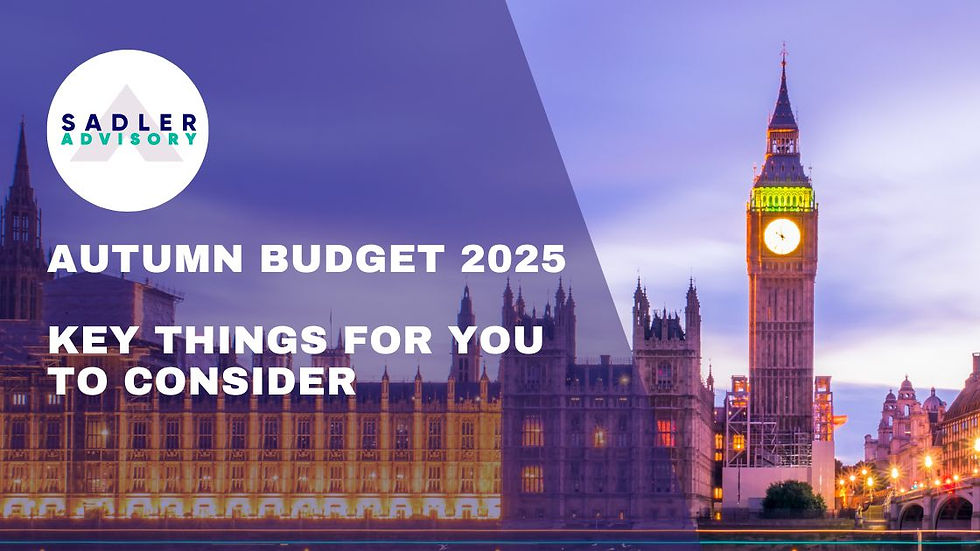INTRO: INFLUENCERS, BLOGGERS, VLOGGERS & CONTENT CREATORS
- John Sadler

- Jun 17, 2021
- 2 min read
Influencers are those with the ability to influence potential buyers of a product or service by promoting or recommending the items on social media. The explosion of social media has presented commercial and business opportunities to vast swathes of the population. With this opportunity comes fiscal responsibility, as well as an interest from HMRC into the expanding industry.
Do I Need To Pay Tax On This Income?
In a word: Yes.
Whether you are in full time employment (PAYE) and do earn some extra money ‘on the side’, or whether this is your full time gig, HMRC considers you are running your own business. It may be a small business, or quite a large business, but it’s a business nonetheless. A business has income and some allowable tax deductions, leaving a profit upon which tax is calculated and paid to HMRC.
Where Do I Start?
If you intend to start business or have already started, here are some helpful steps to help arrange your tax affairs appropriately:
Register for self employment with HMRC – Register for Self Assessment – GOV.UK (www.gov.uk)
Open a bank account, which is separate from your personal bank account, which you use for all business income and expenses. An account with a ‘challenger’ bank can be opened online and in a matter of minutes or hours – Revolut, Wise, Monzo, Starling and Tide are the major players in this space
Choose a software for the business – a bank account can integrate with you chosen software, whereby you can easily prepare your profit & loss and attach receipts to each transaction as a helpful way of storing receipts digitally. Xero is a great option and an accountant can help you to get set up.
Expenses In This Industry
Your business will have various running costs. You can deduct the costs from your income to arrive at taxable profit – as long as they are allowable. However, what is allowable? What is allowable can depend on the type of influencer business you are running. For example, a food blogger may have some expenses relating to food testing or restaurant reviews, while a video content creator may have expenses relating to lighting, cameras, and props. Here are some more generic allowable expenses:
travel costs
office costs
subcontractor costs
the cost of goods that you on-sell to customers
utilities (gas, lighting, water, broadband)
advertising & marketing
legal fees
accounting fees
training
For more examples of industry-specific costs, read our post here: https://www.sadleradvisory.com/2021/07/23/influencers-allowable-tax-deductions/
Hire A Specialist Accountant
If you feel like you need support, an experienced accountant can partner with you as you begin your journey, but also to help you grow your business in the years to some.
Feel free to get in touch – email info@sadleradvisory.com or call +44 02037 461594






Comments